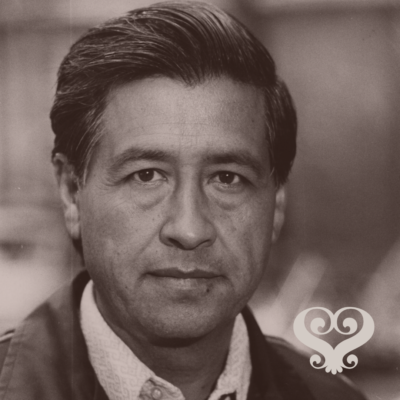Cesar Chavez was born in 1927 to parents who were farmers. Growing up during the Great Depression, the Chavez family lost their land and turned to migrant farm work in California. After completing his 8th grade education, Cesar Chavez left school and began working in the fields full time to help support his family. It was here where he would become exposed to the injustices faced by farmworkers.
Cesar Chavez’s work as a civil rights activist began in the 1950’s with the Community Service Organization (CSO), a notable Latinx rights group. He spent a decade in service to the CSO before moving on to form what would become the United Farm Workers of America (UFWA). He organized effective campaigns for social change including the Delano Grape Strike and created better living and working conditions for farm workers and their families.
While Cesar Chavez was dedicated to gaining rights for farm workers, he also learned from the struggles of other activists. Cesar Chavez was dedicated to the practice of non-violence and spoke often about what he learned from Dr. Martin Luther King, Jr. As a sign of the two men’s legacies, more than 200 public schools and 500 streets throughout the country are named after one or both men.
“Once social change begins, it cannot be reversed. You cannot uneducate the person who has learned to read. You cannot humiliate the person who feels pride. And you cannot oppress the people who are not afraid anymore.“
— Cesar Chavez
Cesar Chavez was a powerful agent for social change. His life work was centered in helping advance human and civil rights. Sankofa Impact remembers him as a leader for the people and we carry his legacy forward knowing the work continues with a persistent hopefulness. In our collective resilience, we know that si se puede– yes, it can be done.

